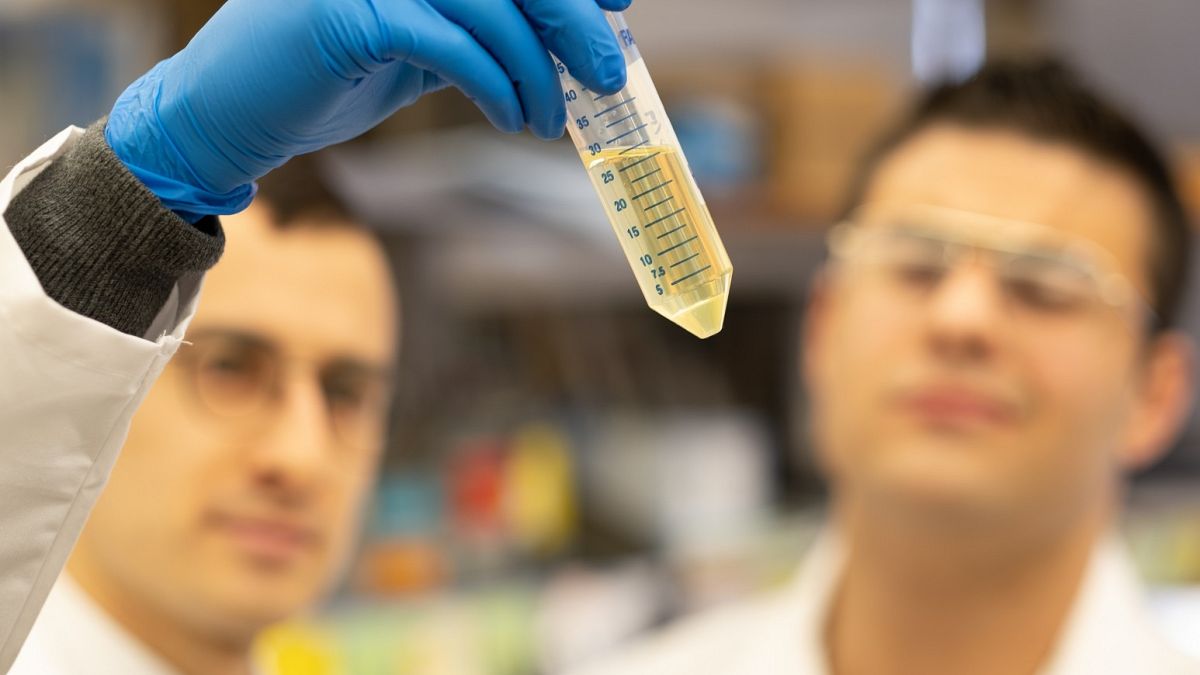The treatment involves taking plasma from the blood of survivors and injecting it into sick patients.
Doctors around the world are already using or are planning to resort to plasma therapy to treat COVID-19 patients, a method that has been used to help sick people get back on their feet for more than a hundred years.
The treatment involves taking plasma from the blood of survivors and injecting it into sick patients.
After someone has a disease and recovers their blood is full of antibodies created by the immune system to fight the illness off.
The hope is that by putting the plasma containing the antibodies into sick patients' bloodstreams, their recovery time can improve.
Does it work?
A handful of people have received the treatment in China and they got better, but scientists say there isn't enough data to conclude that it works.
That is why controlled clinical trials have started around the world to prove whether it is efficient to treat patients with COVID-19 and test the safety of the method.
Craig Devoe, an associate professor at the Feinstein Institutes, is leading the trials in the United States.
“Plasma therapy dates back to the 1890s and has had a historical impact on outbreaks of diseases like measles, mumps and influenza,” he said.
But, Pierre Tiberghien, president of the European Blood Alliance, told Euronews there have never been any differentiated tests of this method against a control group.
He says that unfortunately although this treatment has been used with promising results in the past "we have never been able to really ensure the efficacy of this approach as we have never been able to compare this treatment to patients not receiving this treatment".
Trials are also taking place across Europe and the European Commission, with the collaboration of the European Blood Alliance, is building a database for the collection of data on donation and patient outcome.
"There have been encouraging results in prior treatments of viral respiratory diseases (…) we hope this will make a difference in the treatment of these patients which are often very seriously ill," said Tiberghien.
Is it safe?
The advantage of this method is that it is a readily available treatment. As soon as someone has had a disease and is feeling better they have antibodies in their bloodstream. But plasma transfusions can be risky and people may react differently to antibodies that do not belong to them.
The scientific institutes leading the trials have appealed to thousands of people who have survived the disease to donate their blood and strict guidelines are being put in place.
In the United States, the Food and Drug Administration says that to participate "a person must have tested positive for COVID-19 as documented by a laboratory test and currently be symptom free".
The donated blood then goes through a series of tests to check whether it is suitable for the trial.
Arturo Casadevall, chair of the Department of Molecular Microbiology and Immunology at the Johns Hopkins Bloomberg School of Public Health says that in the US scientists are measuring "the virus-killing antibody in people before they donate. And we’ll use only the highest activity plasma".
The European union has issued a guide on the collection of transfusion of plasma.
Can this be used as a vaccine?
Transfusing plasma full of antibodies to sick patients could help them recover but this treatment is not a vaccine.
Casadevall says this is "a stop-gap solution until vaccines and anti-virals are ready".
A vaccine isn't going to be developed before next year, doctors in the United States have started using plasma transfusions for the sickest patients.
A clinical trial has also started in France and the results are expected to be published in three weeks' time.
